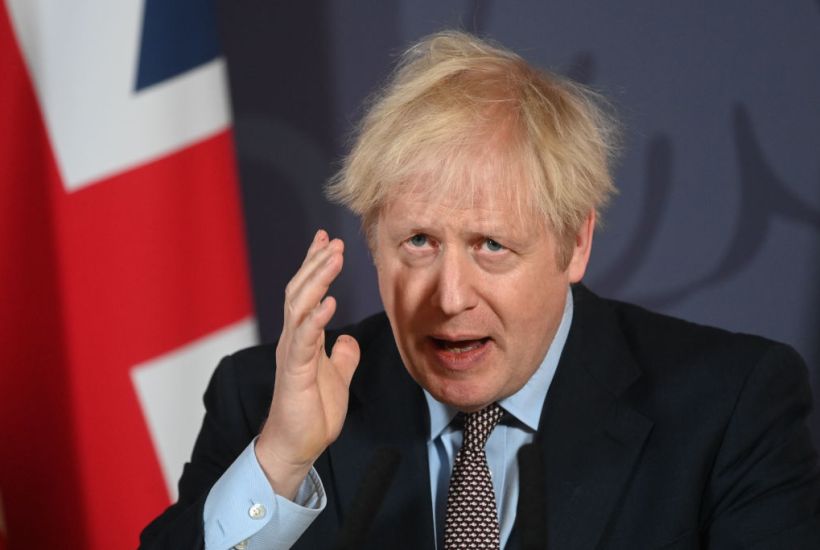Boris Johnson has delivered a deal that I must admit is miles better than I had anticipated. Mind you, I had feared the worst. But this Brexit deal still does not justify the plaudits it is receiving.
Let’s start with the good bits. Great Britain (as opposed to the UK) will, on 1 January, be out of the Single Market, largely free of the European Court of Justice and able to make its own laws. We will be able to trade in goods with the EU free of tariffs and quotas. Yet without wishing to detract from the importance of these achievements, there is very little else that is good in the agreement and which could not otherwise be achieved.
The Trade and Cooperation agreement (TCA) does not in any way unpick the pernicious Northern Irish Protocol. Northern Ireland will, to all intents and purposes, remain in the EU’s Customs Union, subject to dynamic alignment with EU State Aid law, VAT and excise duties, and there will be a border down the Irish Sea. The government made an abortive attempt to fix the NIP with the Internal Market Bill in September – which the Prime Minister described at the time as vital – but buckled on it under pressure from Brussels. Michael Gove has yet to explain how EU State Aid law applicable to businesses in Northern Ireland will not creep back into GB.
As for the biggest area of cooperation established in the TCA – the so-called “level playing field” (LPF) – there is nothing good about these provisions. Yes, we have managed to avoid EU laws forming the basis of the LPF. But don’t be mistaken: we have still entered into onerous non-regression undertakings which will make it difficult for us to diverge and deregulate. So in matters of state aid, competition, the environment, employment and taxation we will be effectively joined at the hip with the EU. We will remain a highly regulated and taxed economy.
To make matters worse, we have undertaken to become carbon neutral by 2050 (to which Theresa May had admittedly committed us in domestic law but now we will be bound by it in treaty). As for the curbs placed on state aid, these will make it challenging for the Prime Minister to deliver the intervention he has suggested he will use to level up the country. It will also make it difficult for the government to adopt a “Buy British First” policy.
As for services, which comprise 80 per cent of the UK’s economy, these are not covered by the TCA. No protections have been afforded to our financial services sector. This is quite a failing for what is touted to be a comprehensive free trade agreement; particularly given the jealousy with which Paris and Frankfurt eye the City, as Anthony Browne points out on Coffee House.
The UK’s main sell-out, though, is in fishing. There is hardly any reduction in the EU’s quota share during a five-and-a-half year transitionary period. A figure of 25 per cent has been bandied about by our side but there appears to be no evidence of this in the tables within the agreement. More importantly, the waters do not come back to us cost free after this transitionary period ends. If we should seek to reduce the EU’s quota shares, without their agreement, they would be entitled to levy tariffs; under this scenario, we would literally have to pay the EU to access our own waters. This is surely a failing of mammoth proportions. Even though fishing is a small part of the UK’s GDP, recovering this renewable natural resource would have transformed the economies of 186 coastal constituencies. An easy win to level up the country has been squandered.
But the problems with Boris’s Brexit agreement don’t end there. Of serious concern is the commitment we have made within the TCA to fund and participate in Horizon Europe. Up until this month, HE was a benign enough research programme, but a couple of weeks ago, the European Defence Fund was shoehorned into it. Is this really something we want to be funding? Until a few years ago, we were repeatedly told the EU had no military ambitions. Then after the referendum, Theresa May signed us into various parts of their defence union. It seems Johnson wishes to continue in this vein.
In short, when one considers the combination of the Withdrawal Agreement, Northern Irish Protocol and the TCA, no claim can be made by the Prime Minister that he has fulfilled his Brexit manifesto pledges. We will not have taken back total control of our laws, our borders, our cash or our fish. Neither can he claim that the UK has left the EU as one United Kingdom; we shall instead be the first country in history to have voluntarily partitioned itself. In view of the enormous bearing the TCA will have on the UK for years to come, it is more than a little concerning that it is being rushed through Parliament at breakneck speed. It requires much deeper consideration.
There is, however, one enormous saving grace in the TCA. It is a short clause on page 405 which I was delighted to read. It enables either party unilaterally to terminate the agreement subject to 12 months’ notice. It is our get-out-of-jail card. If the Prime Minister truly wishes the UK to have a bright future he should now set the country on a path of genuine independence in trade and other matters. Having achieved that he should pull this ripcord and set us free.
Got something to add? Join the discussion and comment below.
Get 10 issues for just $10
Subscribe to The Spectator Australia today for the next 10 magazine issues, plus full online access, for just $10.




















Comments
Don't miss out
Join the conversation with other Spectator Australia readers. Subscribe to leave a comment.
SUBSCRIBEAlready a subscriber? Log in